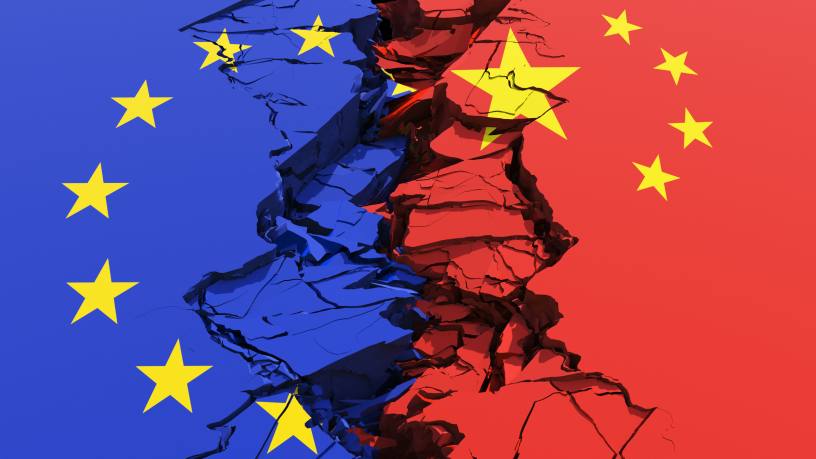For a brief period, things were looking up for bilateral investment ties between China and the EU. After seven years of difficult negotiations, the two sides finally agreed to a Comprehensive Agreement on Investment (CAI) on December 30, 2020. Designed to improve and codify market access to China for EU businesses and investors across a range of sectors, the agreement offered heightened investment transparency standards and an ostensible “level playing field” for both sides across designated investment domains.
Over the past three months, however, the geopolitical sands have shifted.
On March 22, 2021, in response to human rights abuses against the Uyghur ethnic group in China’s Xinjiang province, the EU applied sanctions on Beijing, in concert with the US, the UK and Canada. For its part, the EU sought to avoid a conflict and limited its sanctions to four senior officials working in Xinjiang, along with a regional security bureau in the province. But the Chinese response was swift; at least five European parliamentarians from different political groups were sanctioned in kind (among other individuals), along with the EU’s political and security committee, a research institute and a democratic advocacy organisation.
These tit-for-tat sanctions have the potential to scupper the investment agreement reached between the EU and China, not least because it is awaiting ratification from the European parliament.
High stakes
Much is at stake for both sides. From the Chinese perspective, a widening rift with Europe could push Brussels closer to the US at a time when the bloc’s leadership is prioritising “strategic autonomy”. For the EU, a failure to get the CAI across the line would clearly harm its long-term business and investment interests in China.
In mid-March, the bloc published the agreement’s market access schedules, detailing the access afforded to each investment sector included in the accord. These have revealed a handful of notable gains for Europe, including in financial services and renewable energy.
[In the deal] there is no joint venture requirement for European financial institutions to establish themselves in China... that could be significant
Yet, they also underline the fact that many of the access agreements, in sectors such as automotive manufacturing and medical services, were already scheduled to occur as a result of incremental market liberalisation in China. As a result, some of Europe’s gains appear to be in the form of formal and codified access to the Chinese market.
“This deal is rather strange in the sense that Europe is trading access to the Chinese market [in exchange] for China agreeing to various non-economic goals. What strikes me is that China wanted to do most of these things anyway,” says Maximilian Kärnfelt, an analyst with the Mercator Institute for China Studies, the research institution that was subject to Chinese sanctions.
Joint venture requirement lifted
Beyond the codified market access, however, the EU has secured a notable opening with respect to financial services. “Something that stands out to me is that there is no joint venture requirement for European financial institutions to establish themselves in China. And I think that could be significant,” adds Mr Kärnfelt.
Under the agreement, joint venture requirements and foreign equity caps have been lifted for banks trading in securities, insurance and asset management. In this respect, EU financial services institutions have secured the same rights as their American counterparts to operate in China’s financial services market. If the growing presence of US banks and other financial services firms in China is anything to go by, European financial services groups could follow the same trajectory.
Yet, the outlook for the EU–China future relationship is far from favourable. Tensions between the two sides are high and many observers fear that the CAI could soon be a casualty of this mounting political uncertainty.












